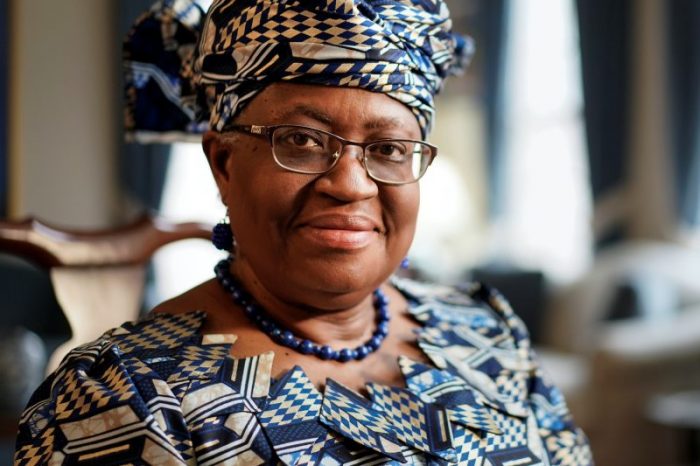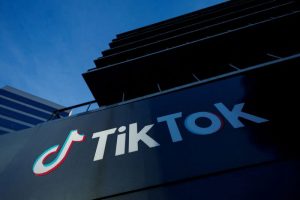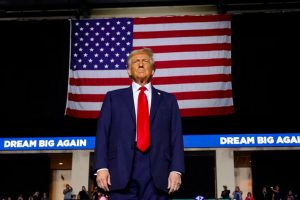(ATF) The first woman and first African to lead the global trade body says “the WTO is too important to allow it to be slowed down, paralysed and moribund”.
Ngozi Okonjo-Iweala, 66, is a Harvard-educated development economist who spent 25 years at the World Bank, where she oversaw a portfolio of $81 billion. In 2003, she returned to her homeland to become finance minister and earned a reputation as a hard-nosed negotiator by helping to seal a deal to cancel billions of Nigerian debt with the Paris Club of creditor nations in 2005.
Dr Ngozi, as she is known, hopes to lead the beleaguered agency to address major challenges such as the pandemic-induced global recession and a push to overhaul the agency to correct what Western nations say are “trade distortions” caused by China.
The United States, along with European countries and Canada, want reform of the WTO, and say the global trade body’s rules need to change and reflect China’s economic growth.
The new world trade boss is a mother of four who was raised by academics. She has a reputation for hard work, modesty and a track record of taking on seemingly intractable problems. But her position only has limited formal power. WTO decisions are made by member states – and only when they can reach consensus.
Her appointment was delayed by former US president Donald Trump, who blocked her nomination until new President Joe Biden gave her the backing to proceed and she was endorsed by the WTO’s 164 members on February 15.
She was due to hit the ground running today (March 1), her first day on the job in Geneva, by attending the WTO’s annual General Council meeting.
One of her first tasks will be to nominate four new deputy directors to help recharge the organisation’s negotiating mechanisms.
The WTO chief has said one of her main objectives is to push long-blocked trade talks on fishery subsidies across the finish line in time for the ministerial conference, but with negotiations dragging on, some observers says that could be a tough sell. She told journalists she thinks a deal on this is “within reach”.
And in the midst of a global economic crisis triggered by the Covid-19 pandemic, she has plenty of other challenges on her plate.
The Nigerian has voiced concern about growing protectionism and nationalism during the coronavirus crisis and insists trade barriers must be lowered to help the world recover. Among the issues to be discussed on Monday is a push for the WTO to waive intellectual property rights for Covid-19 vaccines.
Vaccine disparities ‘unconscionable’
Dozens of nations say this would help boost production and access and would rein in the pandemic sooner, but the notion has been rejected by pharmaceutical giants and the countries that host them.
Okonjo-Iweala chaired the Gavi vaccine alliance before running for the WTO and has made tackling the pandemic another of her priorities.
In a likely bid to avoid a row on day one, Dr Ngozi called for flexibility, encouraging voluntary licencing agreements, such as the one agreed between AstraZeneca and the Serum Institute of India, whereby the SII factory manufactures the pharmaceutical giant’s Covid-19 vaccines.
She told a reporter from Reuters the disparities in vaccine rates between rich and poor countries were “unconscionable” – an opinion she appears to share with the head of the World Health Organisation, Tedros Adhanom Ghebreyesus, who has described Okonjo-Iweala as the “WTO’s perfect chief”.
Currently, the World Trade body faces a deadlock over an issue of waiving intellectual property rights for Covid-19 drugs, with many wealthy countries opposed.
However, this is a battle similar to one waged when major pharmaceutical companies argued against sharing drugs to counter the spread of HIV and AIDS – a debate that created a furore in the early 2000s and led to ‘compulsory licensing’ provisions for poor and middle-income countries such as Thailand and many in Africa that could not afford to pay the high prices that drug-makers insisted on receiving.
Meanwhile, the Ottawa Group, which includes the EU and 12 countries including Brazil, Canada and Switzerland, will demand that countries commit not to hinder the flow of medical goods during the pandemic, and remove customs duties on those considered essential.
Another daunting challenge will be following through on her vow to breathe life back into the appeals branch of the WTO’s dispute settlement system. The Appellate Body, sometimes called the supreme court of world trade, ground to a halt in December 2019 after years of relentless US opposition.
Former WTO chief Pascal Lamy is a fan of Dr Ngozi. “She brings stature, she brings experience, a network and a temperament of trying to get things done, which is quite a welcome lot in my view,” he told Reuters recently. “I think she’s a good choice.”
The key to her success may depend on “her ability to operate in the centre of a “US-EU-China triangle”, Lamy said.
More importantly, perhaps, the woman herself, hardly appears daunted by the tests that lie ahead.
“I feel I can solve the problems. I’m a known reformer, not someone who talks about it,” she told Reuters in an earlier interview. “I’ve actually done it”.
With reporting by AFP and Reuters.
























